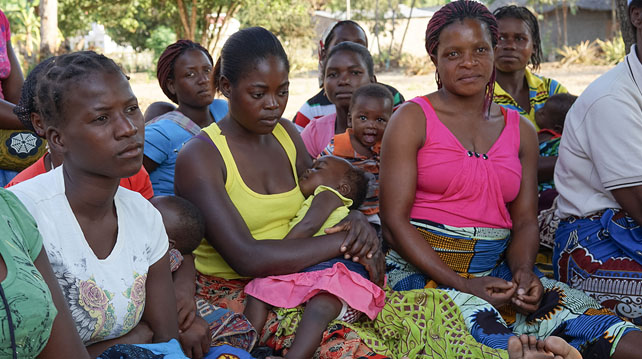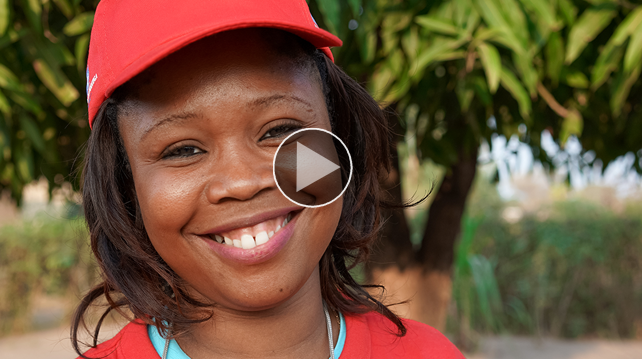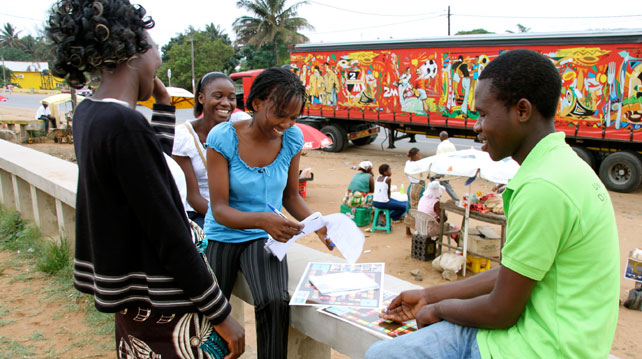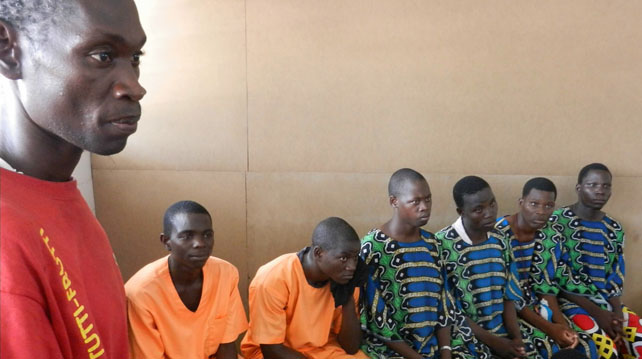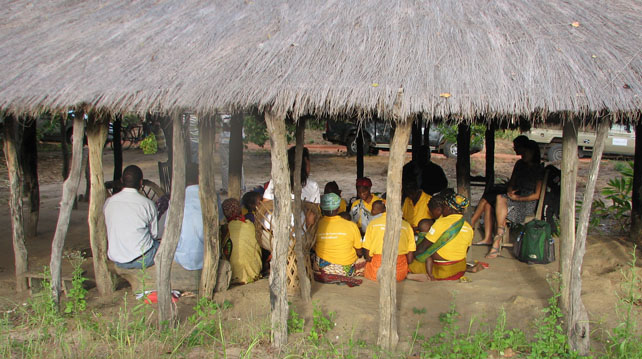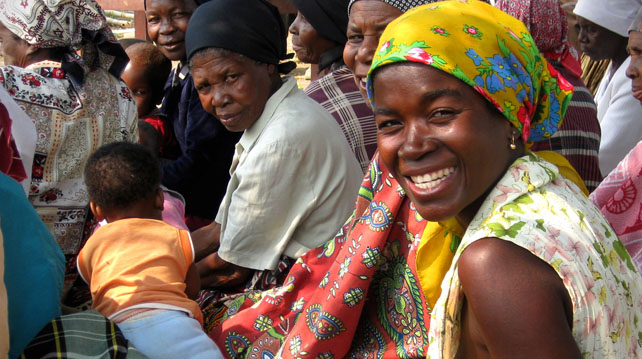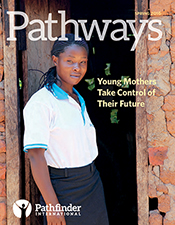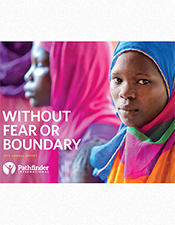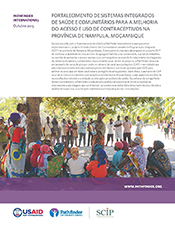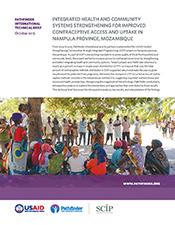Mozambique
Pathfinder International has been working in Mozambique since 1997. Today, fifteen years after our first office opened in Maputo and twenty years after the end of the post-independence civil war, the country has made great strides related to the health and development of its people.
However, use of contraceptives, HIV prevalence, and maternal mortality due to unsafe abortion remain persistent problems for the country. Prevalence of modern contraceptive use among married women remains at only 11 percent, 13.1 percent of women and 9.2 percent of men between the ages of 15-29 test positive for HIV, and in the southern African region, unsafe abortion accounts for a death rate of 460 per 100,000.
Our work in Mozambique ranges from prevention of gender-based violence, with support from the Norwegian Ministry of Foreign Affairs, to reproductive health, family planning and maternal health at the community and facility levels, encompassing areas such as HIV and malaria with funding from USAID.
And finally, a key component of Pathfinder Mozambique's work in HIV and AIDS includes support for key populations, including men who have sex with men and female sex workers—as these groups are not only at higher risk for HIV infection, but also experience the most stigma in seeking services. Our work with these populations seeks to increase access to clinical and community services that protect the client's human rights.
Our Projects
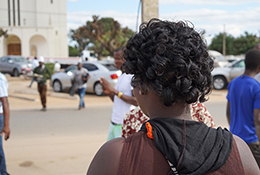
Increasing Access to HIV Prevention, Care, and Treatment Services for Key Populations in Mozambique
This project works to strengthen the national response to HIV among key populations and in prisons in order to contribute to the reduction of HIV incidence.
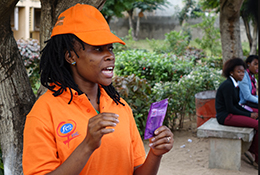
Increasing Demand and Accessibility to Female Condoms in Mozambique
Pathfinder is working to create an enabling environment that is conducive to an increase in the demand and accessibility to and use of female condoms by sexually active Mozambican women.
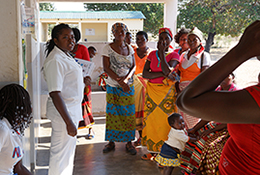
Before, During, and After Pregnancy: Always Women
Pathfinder is developing and implementing a community-based model that supports the health and rights of young women of reproductive age by addressing the four prongs of PMTCT.
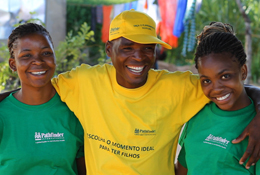
Iniciativa: Strengthening the Capacity of Youth Civil Society in Sexual and Reproductive Health Rights
Through this project, Pathfinder empowers youth organizations to become strong advocates for adolescent and youth sexual and reproductive health and rights.
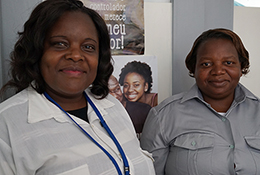
Bolstering Multisectorial Action to Address Gender-based Violence and Sexual and Reproductive Health
This project, funded by the Norwegian Ministry of Foreign Affairs, strengthens and scales up a multisectoral approach to primary and secondary prevention of gender-based violence and unsafe abortion in Gaza, Inhambane, Cabo Delgado, and Maputo provinces.
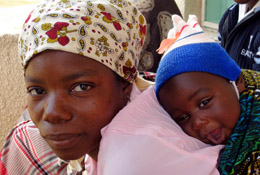
Evidence to Action for Strengthened Family Planning and Reproductive Health Services for Women and Girls (E2A)
The Evidence to Action Project (E2A) is USAID’s global flagship for strengthening family planning and reproductive health service delivery.
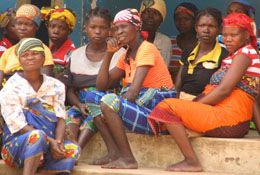
Strengthening Communities through Integrated Programming (SCIP)
SCIP is designed to increase quality of life at the household and community levels by improving health and nutritional status and advancing household economic viability.
Related Publications
Young Mothers Take Control of Their Future
Today, half the world’s population is under 25. This issue of Pathways explores how young mothers like Dorothy are exercising their sexual and reproductive rights—and taking control of their future.
Without Fear or Boundary: Pathfinder International's 2015 Annual Report
Forging a new path is part of Pathfinder’s DNA. Last year, in 26 developing countries, we pushed through barriers to ensure millions of women, men, and young people are able to access critical sexual and reproductive health care and choose their own paths forward. Read more in our 2015 Annual Report.
Fortalecimento de Sistemas Integrados de Saude e Comunitarios Para a Melhoria do Acesso e Uso de Contraceptivos na Provincia de Nampula, Mocambique
This Portuguese translation of a Pathfinder technical brief discusses a retrospective programmatic analysis undertaken by the Strengthening Communities through Integrated Programming (SCIP) project team in Mozambique.
Integrated Health and Community Systems Strengthening for Improved Contraceptive Access and Uptake in Nampula Province, Mozambique
Implemented in northern Mozambique, Pathfinder’s SCIP project achieved notable increases in a key contraception indicator over its lifecycle. Recognizing the opportunity to learn from this finding, the project team conducted a retrospective programmatic analysis, which is described in this technical brief.
Related News
Rape and Justice: Several laws address rape and domestic violence, but their enforcement is shaky
One night in April 2013, Luisa, a 46-year-old woman living in a small town in Mozambique, was on her way home when two men dragged her into an abandoned hut and raped her. “I wanted to die, but I told myself I must survive for my daughters,” said Luisa.
